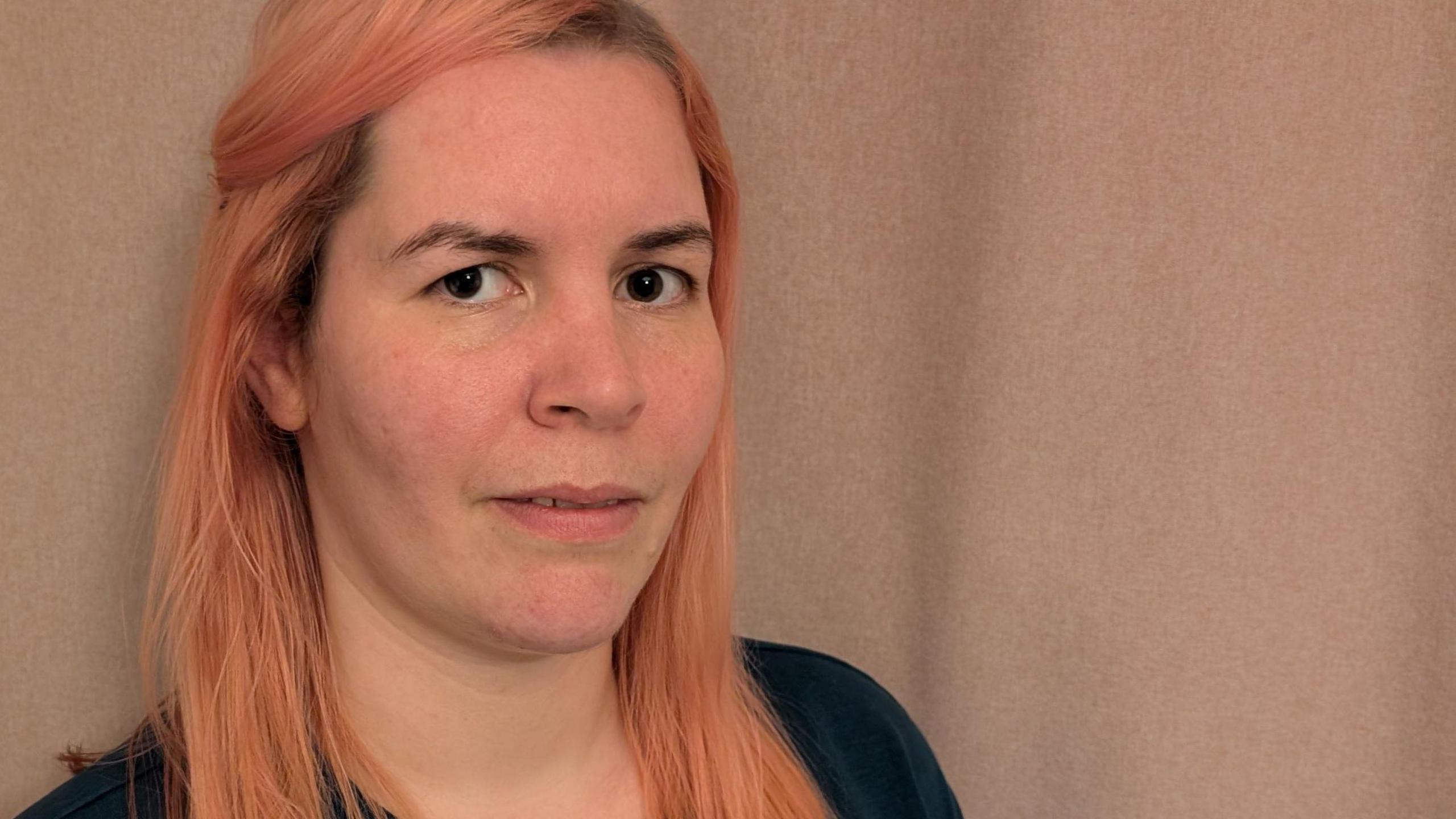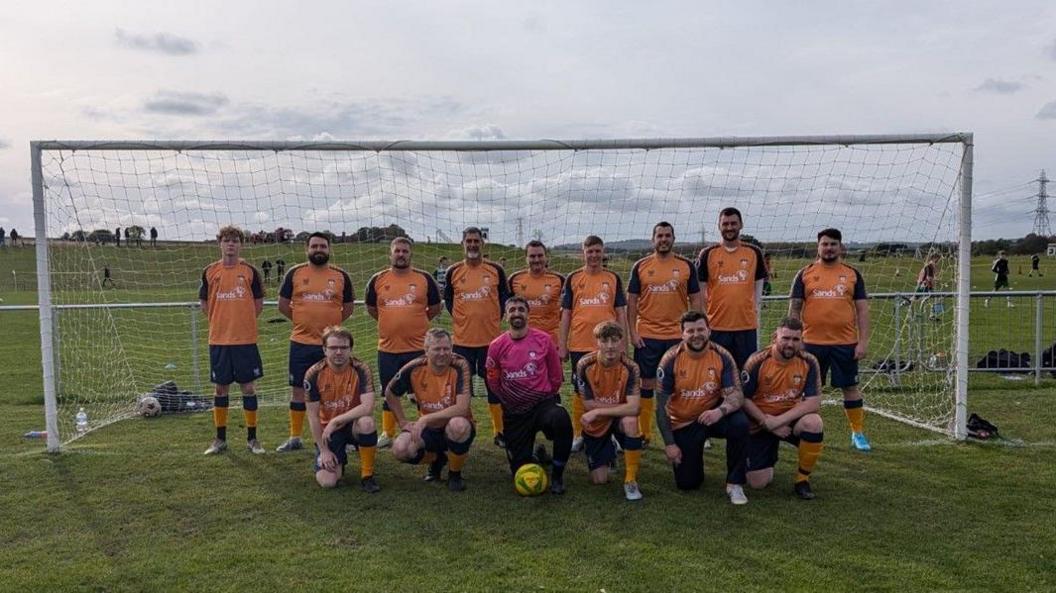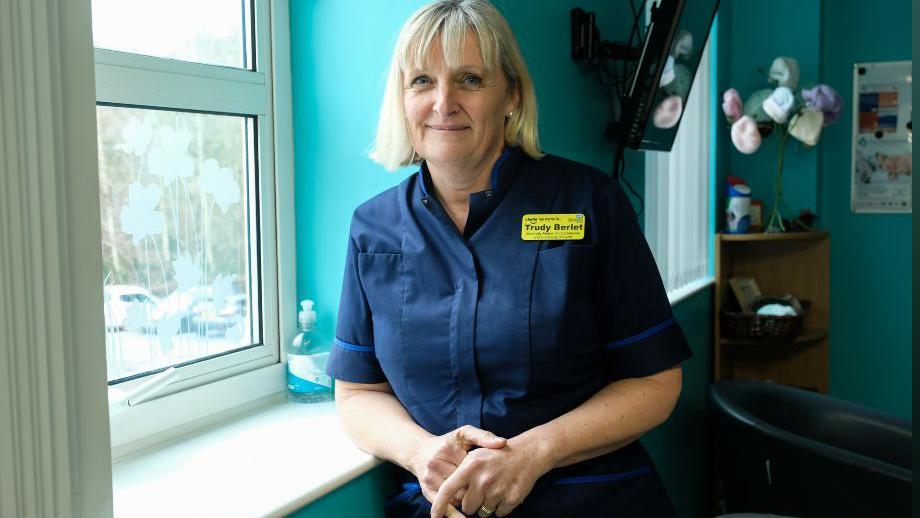Paid leave for bereaved parents is 'crucial'

Tash Allin has experienced three miscarriages
- Published
"From the moment you see those two blue lines, you are invested solely in that pregnancy. As far as you're concerned, that baby is now part of you, it's part of your partner."
Tash Allin, from Leominster in Herefordshire, was nine weeks pregnant when she lost her unborn child - her third miscarriage.
She is joining calls for parents who miscarry to be legally entitled to paid bereavement leave.
"It's the most horrific process to go through," said Ms Allin.
Currently only those who lose a baby after 24 weeks, external are entitled to two weeks of paid bereavement leave.
That does not extend to those who experience miscarriage - the loss of pregnancy during the first 23 weeks, external.
Ms Allin, who has two children, said the importance of support from employers as well as friends and family could not be underestimated.
"My bosses were incredible. I wish that everybody had the same level of support," she explained.
"I had time off, I had no pressure put on me to return to work, I was given the option of counselling when I did return."
Ms Allin said that was a marked contrast to what happened following her previous miscarriage, when she felt pressured to return to work.

Ross Joyner said he and his partner had very different reactions from their employers when they experienced a miscarriage
Ross Joyner and his partner, from Worcester, have one child but have also experienced two miscarriages.
Mr Joyner - who set up a football team to support bereaved fathers - said his employers were "absolutely brilliant", giving him paid leave and not pressuring him to come back, but it was a different story for his partner.
"We didn't get any pay towards it," he said. "The only way we could get it was to possibly claim for sick pay. But she wasn't sick, she was grieving.
"So I think it is crucial that they do pay people pre-24-week loss, because the last thing you want is money issues when going through this horrendous thing."
The couple had to get a loan and take a mortgage holiday to keep afloat.
Ms Allin believes encouraging people to talk more openly about baby loss might help to change attitudes from employers.
"It's a massive part of life and if people don't talk about it that's also another reason why they're not getting the support that they need.
"Talking about it and being open and honest is really, really important."
Get in touch
Tell us which stories we should cover in Hereford & Worcester
Follow BBC Hereford & Worcester on BBC Sounds, Facebook, external, X, external and Instagram, external.
Related topics
- Published15 January

- Published15 November 2024

- Published16 February 2024
